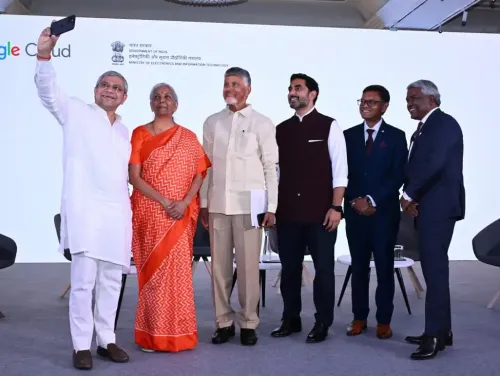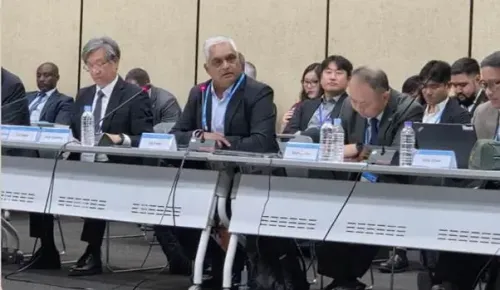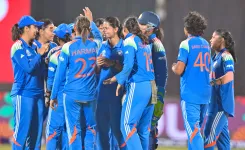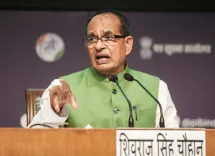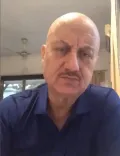Has WHO Recognized India’s Integration of AI in Traditional Medicine?

Synopsis
Key Takeaways
- WHO recognizes India's integration of AI in traditional medicine.
- Significant advancements in Ayush systems through technology.
- AI applications in various traditional practices like Ayurveda and Siddha.
- Utilization of digital platforms for healthcare accessibility.
- Commitment to preserving ancient medical wisdom.
New Delhi, July 13 (NationPress) The World Health Organization (WHO) has recognized India’s groundbreaking initiatives in merging Artificial Intelligence (AI) with traditional medicine systems, especially the Ayush systems, as reported by the Ministry of Ayush on Saturday.
This acknowledgment marks a significant achievement for India’s time-honored healthcare practices, with the WHO highlighting the nation’s endeavors to weave digital technologies into traditional medicine systems in its pivotal technical brief titled “AI in Traditional Medicine”.
The acknowledgment follows India’s proposal on this subject, culminating in the creation of the WHO’s first-ever roadmap for utilizing AI in traditional medicine, as stated by the Ministry.
Expressing gratitude for this recognition, the Ministry described it as “a testament to India’s leadership in establishing a robust scientific ecosystem for traditional medicine.”
The AI-centric initiatives noted in the WHO’s technical brief illustrate the profound dedication of Indian scientists to enhance traditional medicine through innovative technology, remarked Prataprao Jadhav, Union Minister of State (Independent Charge) for Ayush.
Highlighted initiatives include a variety of AI-driven applications in Ayurveda, Siddha, Unani, Sowa Rigpa, and Homoeopathy, featuring diagnostic support systems that amalgamate traditional techniques like pulse reading, tongue examination, and Prakriti assessment with machine learning algorithms and deep neural networks.
“By merging AI with Ayush systems -- and utilizing pioneering digital platforms such as the SAHI portal, NAMASTE portal, and the Ayush Research Portal -- India is not only preserving its ancient medical wisdom but also pioneering a future of personalized, evidence-based, and globally accessible healthcare,” stated Jadhav.
The WHO brief also highlights Ayurgenomics -- a scientific advancement that fuses genomics with Ayurvedic principles. This initiative aims to pinpoint predictive disease markers and tailor health recommendations through AI-based evaluations of Ayurvedic constitution types.
Moreover, the document underscores efforts to decode the genomic and molecular foundations of herbal formulations for modern disease applications.
“Together, these AI-enhanced platforms are not only safeguarding and validating India’s traditional knowledge systems of medicine but are also facilitating their global integration within evidence-based, digital healthcare frameworks,” expressed Vaidya Rajesh Kotecha, Secretary, Ministry of Ayush.
The WHO technical brief also commends India’s initiatives to digitize traditional knowledge, such as the Traditional Knowledge Digital Library (TKDL) -- a global benchmark for the conservation and responsible utilization of indigenous medical heritage.
The document further applauds India’s wider efforts in adopting digital platforms for online consultations, promoting digital literacy among Ayush practitioners, and establishing interoperable systems to merge traditional medicine with mainstream healthcare.


